Amid growing concerns about the overuse of antibiotics in farm animals, Burger King has joined the list of fast food chains that will scale back on the use of drugs that are medically important to human beings.
[More]
nrdc
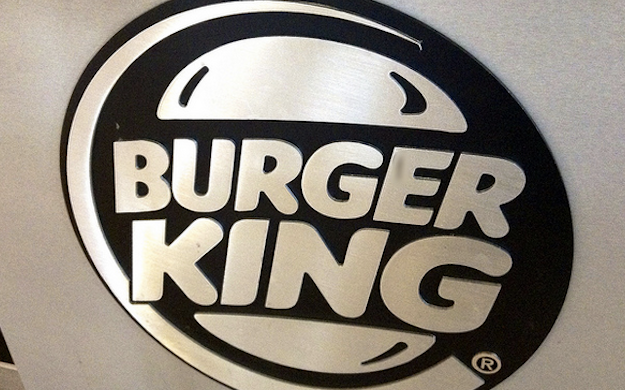
Burger King, Tim Hortons Vow To Cut Back On Antibiotics In Chicken
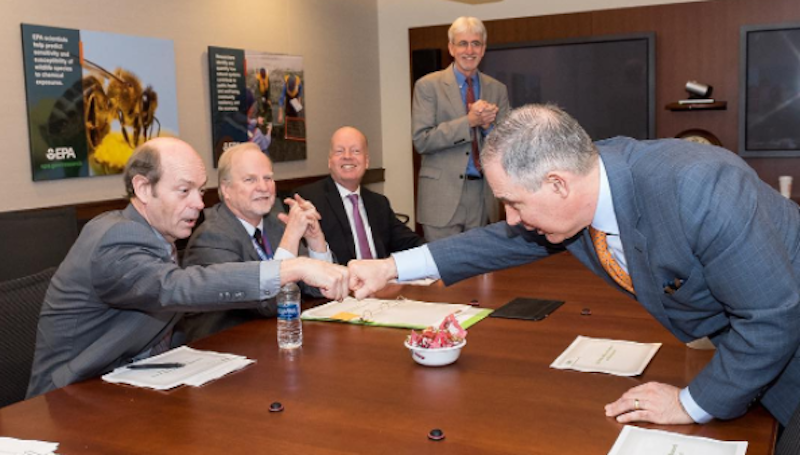
EPA Taken To Court For Ignoring Its Own Science In Deciding To Not Ban Pesticide
When Scott Pruitt recently took over as head of the Environmental Protection Agency, one of his first decisions was to deny a petition seeking a ban on a controversial pesticide — only months after scientists of the agency said it poses a significant health risk. Now the EPA is being taken to court for its decision to ignore its own recommendation. [More]
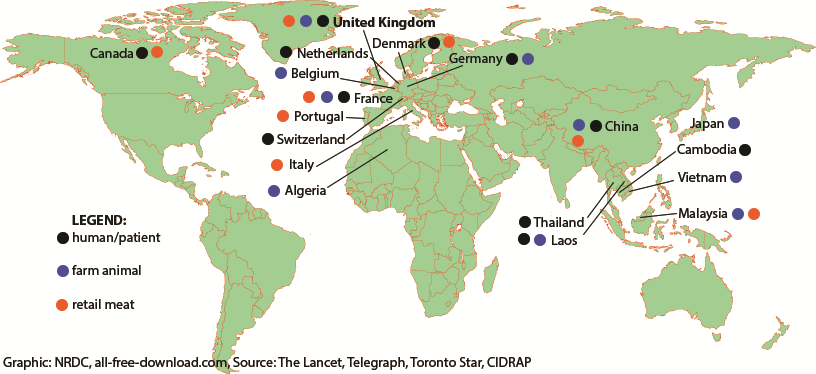
Drug-Resistant Superbug Gene Found In At Least 19 Countries Since November
You’ve likely never been prescribed the antibiotic colistin, because it’s a drug of last resort that you turn to after only other antibiotics have failed. But there’s a gene that can make bacteria resistant to colistin, and a new report says it’s been found in at least 19 countries on four continents. [More]

White House Acknowledges Over-Use Of Antibiotics In Farm Animals, Shrugs
Last year, the FDA released voluntary guidance for the pharmaceutical industry, which sells 80% of all antibiotics in the U.S. to farmers, primarily because they promote growth in animals. That guidance asked drug companies to please stop selling antibiotics for that purpose, but allows them to keep selling just as many drugs for “disease prevention,” even though it’s been proven that continuous, low-dose use of antibiotics renders their medical use less effective and contributes to the development of drug-resistant pathogens. Today, the President’s Council of Advisors on Science and Technology issued a report that some had hoped would recommend the FDA take a harder line on this issue. Those people are probably a bit disappointed. [More]
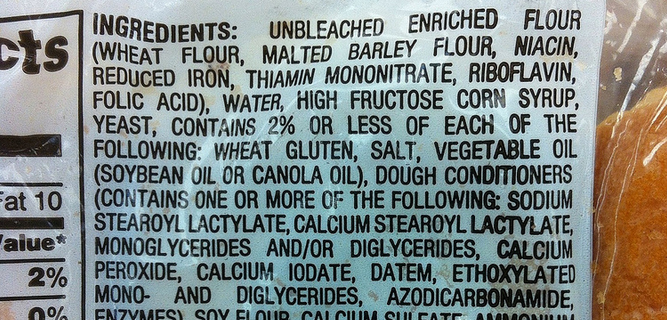
Food Industry Initiative Highlights How Little The FDA Knows About What’s In Our Food
For decades, the food industry has been able to use ingredients that are “generally recognized as safe” (GRAS) without approval from the FDA. When first used in the ’50s, this was intended to apply to ingredients, like vegetable oils and vinegars, where an additive’s safety is common knowledge, but in 1997, a backlogged FDA allowed food companies to merely submit their GRAS findings instead of the supporting data, creating a loophole the food industry has exploited to include a vast number of chemical ingredients that manufacturers claim are safe but which don’t go through a rigorous approval process. Feeling pressure from the public to pull back the veil on the GRAS process and its ingredients, the food industry announced a transparency initiative yesterday that may be a step in the right direction, but highlights just how little the FDA seems to care about the “F” part of its name. [More]
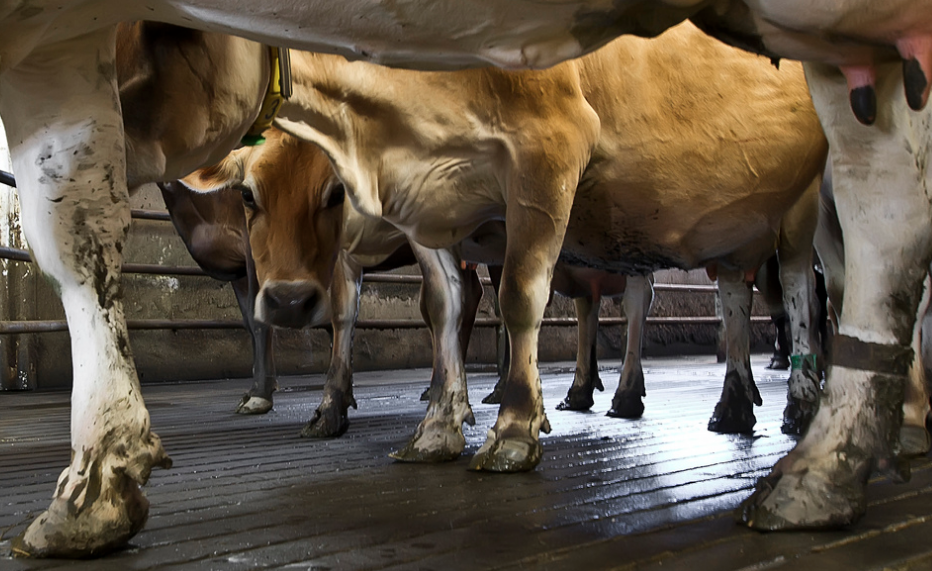
Appeals Court Allows Farmers To Keep Feeding Unnecessary Antibiotics To Animals
More than 35 years ago, the FDA acknowledged that feeding medically unnecessary antibiotics to farm animals may encourage the development of antibiotic-resistant bacteria, which poses a huge health risk to humans. In 2012, a federal court ruled that the FDA is required by law to hold hearings in which the drug makers would need to prove the safety of non-medical use of these antibiotics. But today, a the U.S. Second Circuit Court of Appeals overturned the lower court’s ruling, saying it’s up to the FDA to decide if it wants to hold such hearings. [More]
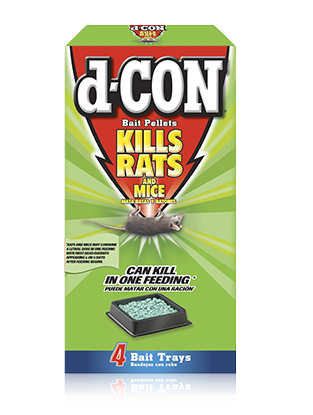
Makers Of d-Con Rat Poison Agree To Pull 12 Potentially Dangerous Products
For years, makers of mouse and rat poisons in the U.S. have been phasing out in-home rodenticides that use toxic pellets without a so-called “bait station” to contain them, allowing to pellets to scatter around a house, making their way into the mouths of curious kids. In fact, only one company has balked at pulling these potentially dangerous products from shelves; unfortunately, that company is the nation’s largest maker of rat poison. [More]
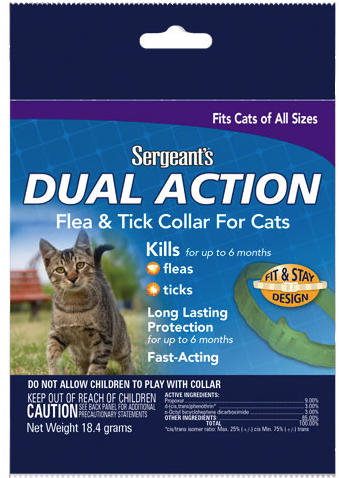
Flea Collar Makers Agree To Eventually Phase Out Collars Containing Toxic Chemical
Facing a lawsuit for allowing manufacturers to produce flea collars containing a pesticide that is a known neurotoxin and carcinogen, the folks at the Environmental Protection Agency, along with two major pet product companies, have agreed to phase out these controversial collars over the next few years. [More]

EPA Sued In Effort To Remove Potentially Toxic Chemicals From Fido’s Flea Collar
It is the worst when our furry friends pick up fleas and then bring them into our homes. Except, it’s really not quite the worst. What’s worse? When the flea collar you buy for Fido damages your child’s brain with neurotoxins. [More]

Report: FDA Lets Farmers Use Antibiotics That Pose “High Risk” To Humans
Before it recently issued a “pretty please” to drug companies, asking them to voluntarily stop making billions of dollars off of unnecessary antibiotics sales to farmers, the Food and Drug Administration spent decades appearing to avoiding the topic. But a new report claims that the FDA actually spent 10 years internally reviewing the safety of dozens of antibiotics used in animal feed, drugs that the FDA’s own scientists said pose a high risk to human beings. [More]

Big Meat & Big Pharma Pleased As Punch With FDA’s Pointless New Antibiotic Guidelines
Yesterday, the FDA came out swinging (with a Wiffle ball bat) against the medically unnecessary use of antibiotics in animal feed (by politely asking the drug companies that make piles of cash off these drugs to please stop selling so many of them to farmers just to encourage tissue growth). To demonstrate just how weak this (in)action is, one need look no further than the enthusiastic response from the nation’s huge meat and drug companies. [More]

Cable Industry Claims Next Generation Of Set-Top Boxes Won’t Use More Electricity Than Refrigerators
Billions of dollars are spent every year providing power to the nation’s cable boxes, much of it consumed when the boxes aren’t being actively used. A group of 15 cable companies and box manufacturers have agreed to changes that will — eventually — save around $1.5 billion each year in electric bills, but some say it’s all just a lot of hot air. [More]

Lawsuit Asks FDA To Regulate Sperm-Damaging Antimicrobial Soap Chemicals
Thirty years ago, the FDA considered regulating two toxic chemicals that can damage reproductive organs, sperm quality, and hormone production. Rather than do something, the agency instead did nothing. Last week, the National Resources Defense Council sued the agency, asking them to finally finish the job and regulate the chemicals triclosan and triclocarban. [More]

